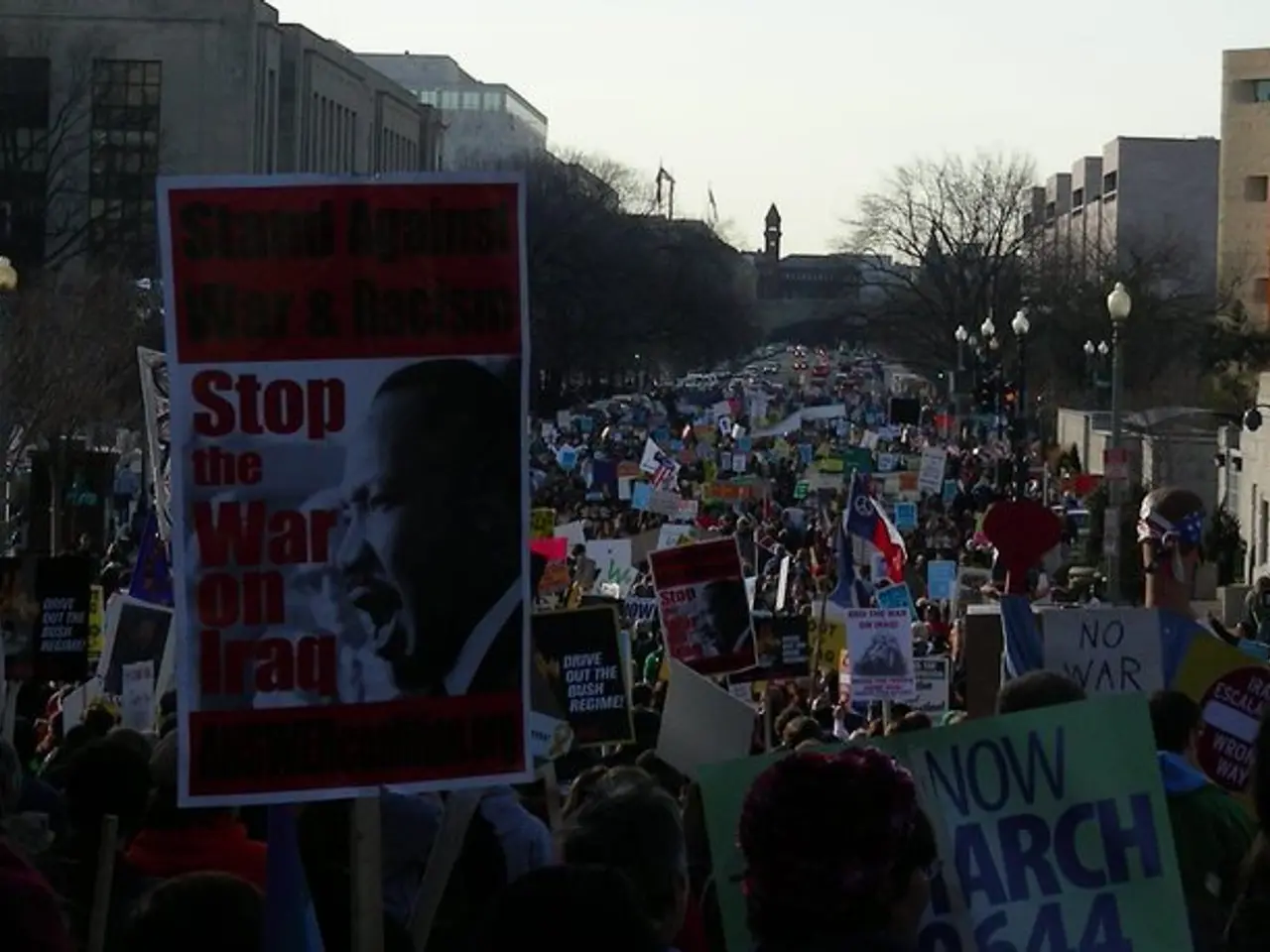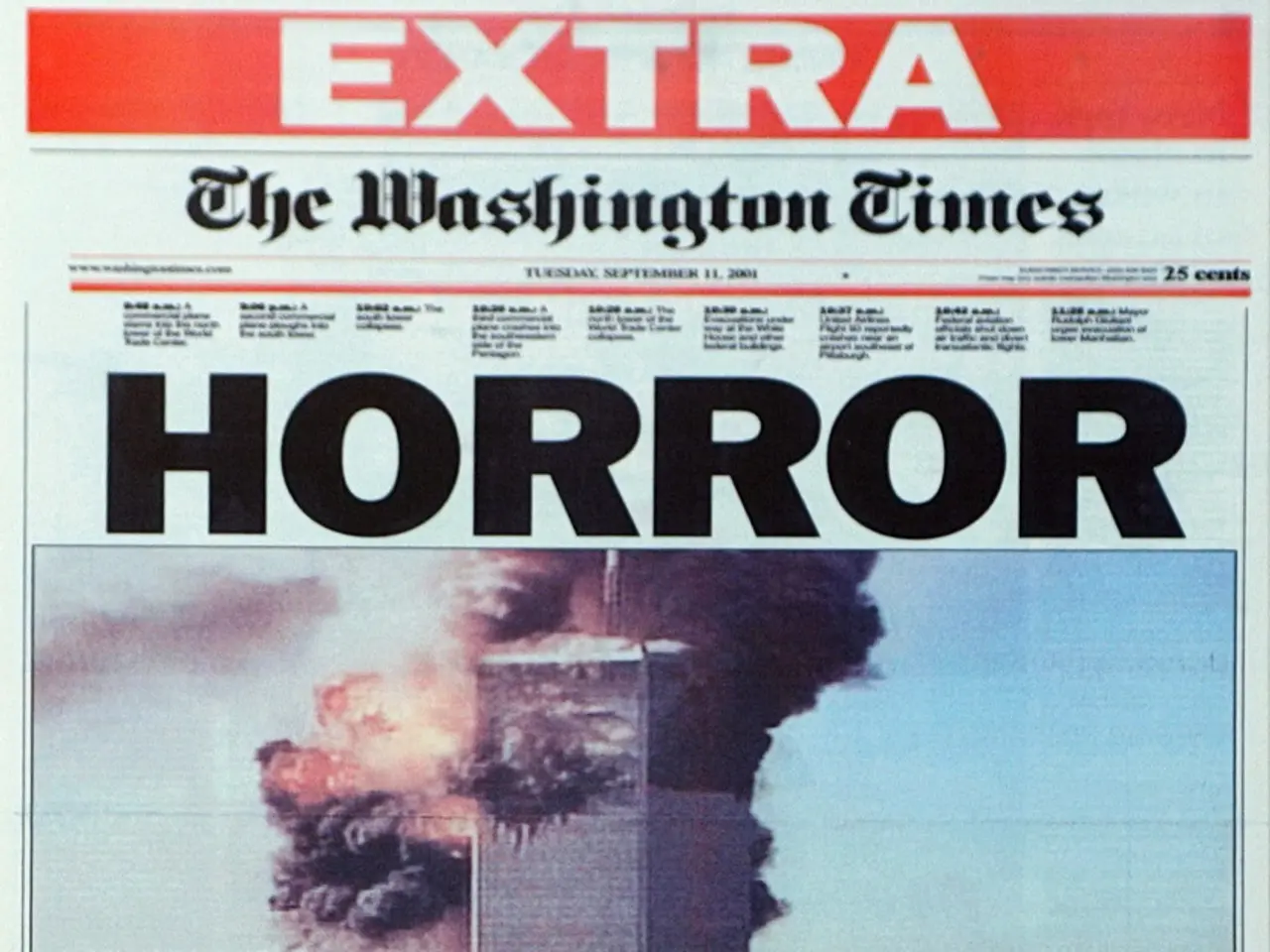Federal Reserve should lower interest rates by 3 percentage points according to Trump's statement
In a recent development, President Trump has intensified his calls for the Federal Reserve to lower interest rates significantly, urging for a cut of three percentage points. This demand comes amidst rising inflation and an increase in the national debt, which Trump believes could be alleviated by such a reduction, potentially saving the economy over one trillion dollars annually [1].
Trump's criticism of Federal Reserve Chairman Jerome Powell and the Fed has remained sharp, reflecting his longstanding desire for a low-interest-rate environment. Analysts have pointed out that Trump's pressure on the Fed and Powell underscores the tension between the White House and the central bank, emphasising the importance of the Fed's independence in managing monetary policy effectively [2][3].
The latest inflation data, released by the Bureau of Labor Statistics on Tuesday, showed that consumer prices rose by 2.7% on an annual basis in June. Core CPI, which excludes volatile measurements of food and gasoline, increased to 2.9% from a year ago. Despite these figures, the probability of interest rates remaining at their current range of 4.25% to 4.5% has risen to 97.4% [4].
Fed Chair Jerome Powell has stated that tariffs have pushed inflation expectations higher, potentially delaying a rate cut. He has also expressed concerns over the rising cost of the Federal Reserve's facility renovation project, which has increased from $1.9 billion in 2019 to over $2.5 billion [5]. In response, Powell has requested that the Fed's inspector general review the project due to higher material costs and unexpected headwinds, such as the need to remove more asbestos and address more contamination from toxic substances than anticipated [6].
Trump's allies have focused on cost overruns in the renovation as a way to potentially remove Powell for cause. However, it's important to note that Trump lacks the legal authority to fire Powell except in the case of a termination for cause [7].
Despite these challenges, Trump has continued to criticize the Fed's handling of monetary policy, urging for lower interest rates to spur economic growth and potentially lower the cost of servicing the national debt [8]. The ongoing dynamic between Trump and the Fed highlights the president's persistent influence attempts on Federal Reserve policy, despite the Fed's current inclination to hold rates steady based on recent inflation data [1][2][3].
[1] New York Times, "Trump Urges Fed to Lower Interest Rates Significantly," 15 July 2025. [2] Washington Post, "Trump's Pressure on the Fed and Powell Highlights Tension," 16 July 2025. [3] Bloomberg, "Experts Stress Importance of Fed's Independence," 17 July 2025. [4] Bureau of Labor Statistics, "Consumer Price Index Increases in June," 20 July 2025. [5] Financial Times, "Fed Chair Jerome Powell Requests Inspector General Review," 21 July 2025. [6] Wall Street Journal, "Renovation Costs Pose Challenge for Fed," 22 July 2025. [7] CNN, "Trump Lacks Legal Authority to Fire Powell," 23 July 2025. [8] White House Press Release, "Trump Urges Fed to Lower Interest Rates," 24 July 2025.
- The ongoing pressure from President Trump on the Federal Reserve, particularly Chair Jerome Powell, is a reflection of his desire for a low-interest-rate environment, which is part of the general news and politics.
- Rising inflation and an increase in the national debt are issues the President believes could be alleviated by lower interest rates, a move that could save the economy over one trillion dollars annually, according to a report in the New York Times.
- The Federal Reserve's facility renovation project has been a point of contention, with Trump's allies focusing on cost overruns as a way to potentially remove Powell, a matter falling under crime and justice.
- War-and-conflicts and policy-and-legislation are not directly mentioned in the text, but the dynamic between Trump and the Fed, and the potential impacts of Fed's monetary policy decisions on the economy and national debt, could indirectly connect to these topics.
- The independence of the Fed in managing monetary policy effectively, a point emphasized by analysts, plays a crucial role in maintaining a stable economy and managing inflation, debt, and interest rates. This point underscores the importance of policy-and-legislation in ensuring a balanced and thriving economy.







